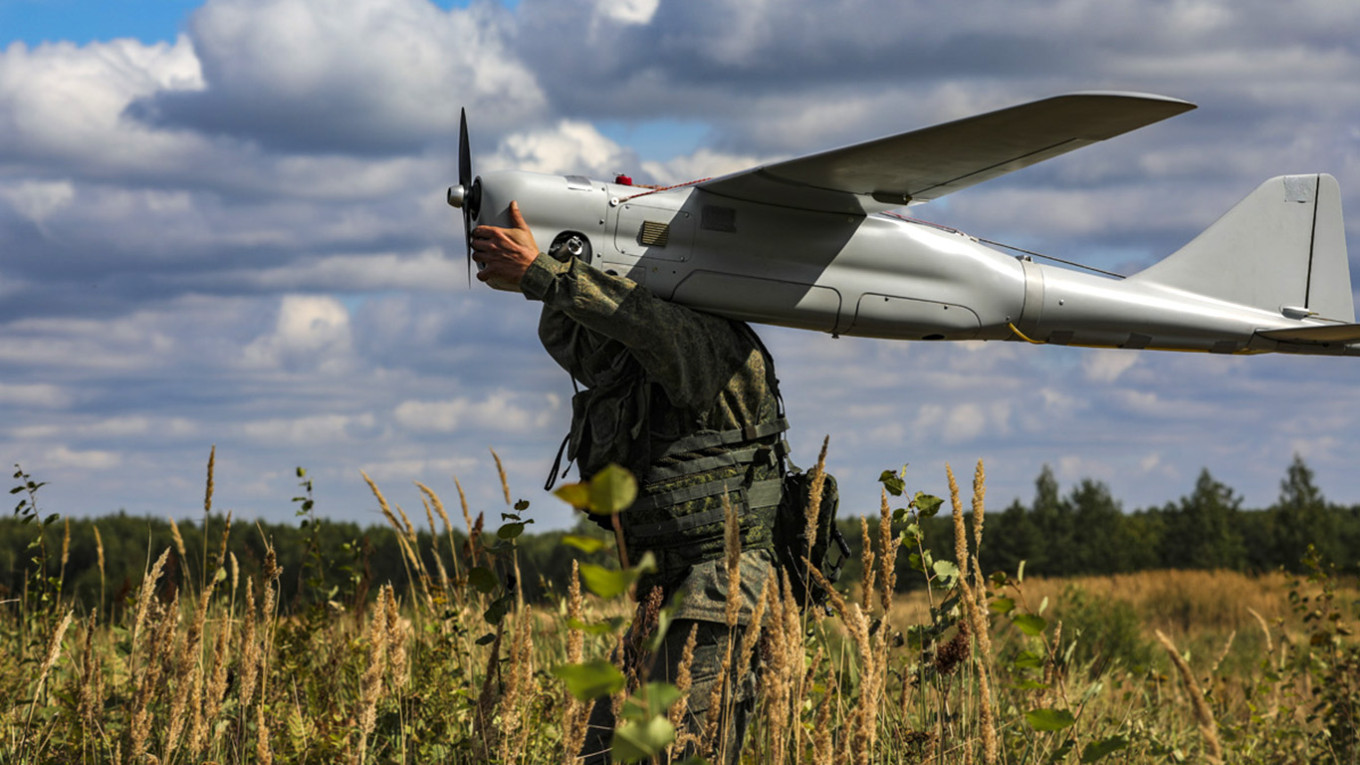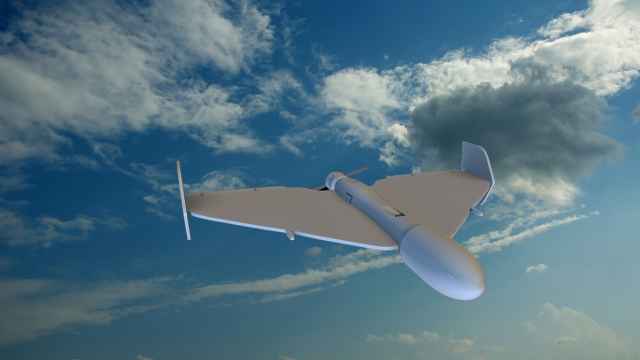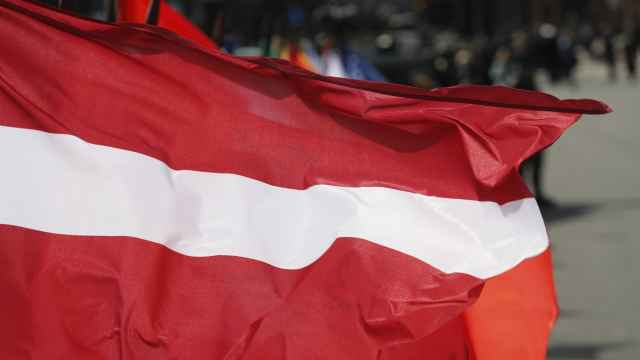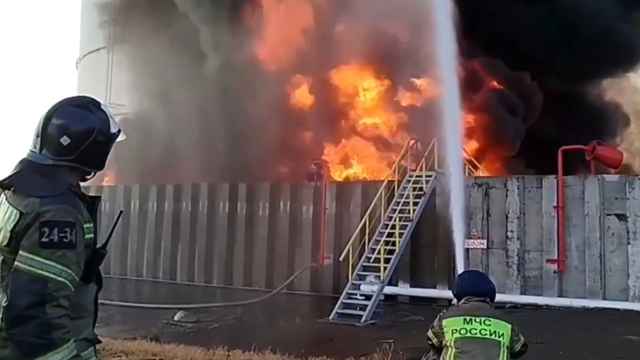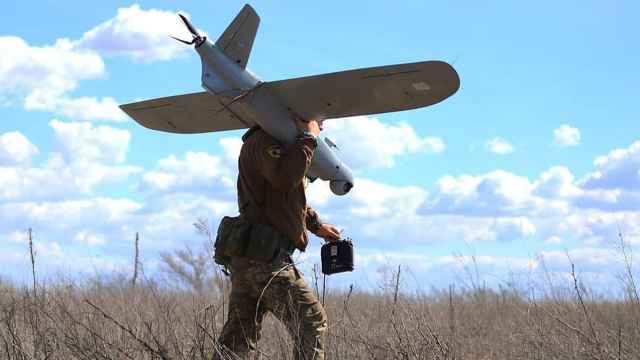NATO members Romania and Latvia on Sunday said that Russian military drones targeting infrastructure in neighboring Ukraine had violated their airspace.
Last month, NATO member Poland also reported a possible fly-in of a Russian drone into its airspace during a large-scale Moscow-led air attack on Ukraine but later backed off the claim.
The reported breaches have stirred concern over heightened confrontation between NATO and Russia, as President Vladimir Putin has repeatedly blamed Kyiv’s Western allies for his decision to invade Ukraine and accused NATO of “provoking” Moscow with its eastward expansion.
Yet Putin also said that Russia has “no aggressive intentions” toward NATO members, dubbing rumors that the Kremlin might be sizing up Poland, the Baltic states or the Czech Republic as its next victim a “complete nonsense.”
The Moscow Times has gathered everything known about the latest airspace incidents and what role they could play in the context of the NATO-Russia standoff:
What happened?
Romania’s Defense Ministry said Sunday that its army radars detected a drone that had entered its airspace, noting that the initial data "indicated the probability of an impact zone on national territory."
Two F-16 fighter jets were deployed to monitor the situation and residents in Tulcea and Constanta counties near the Ukrainian border received phone alerts advising them to take shelter due to possible impact from drone debris, according to the ministry.
The Romanian Defense Ministry later confirmed that fragments of a Russian drone were found near the village of Periprava close to the border with Ukraine.
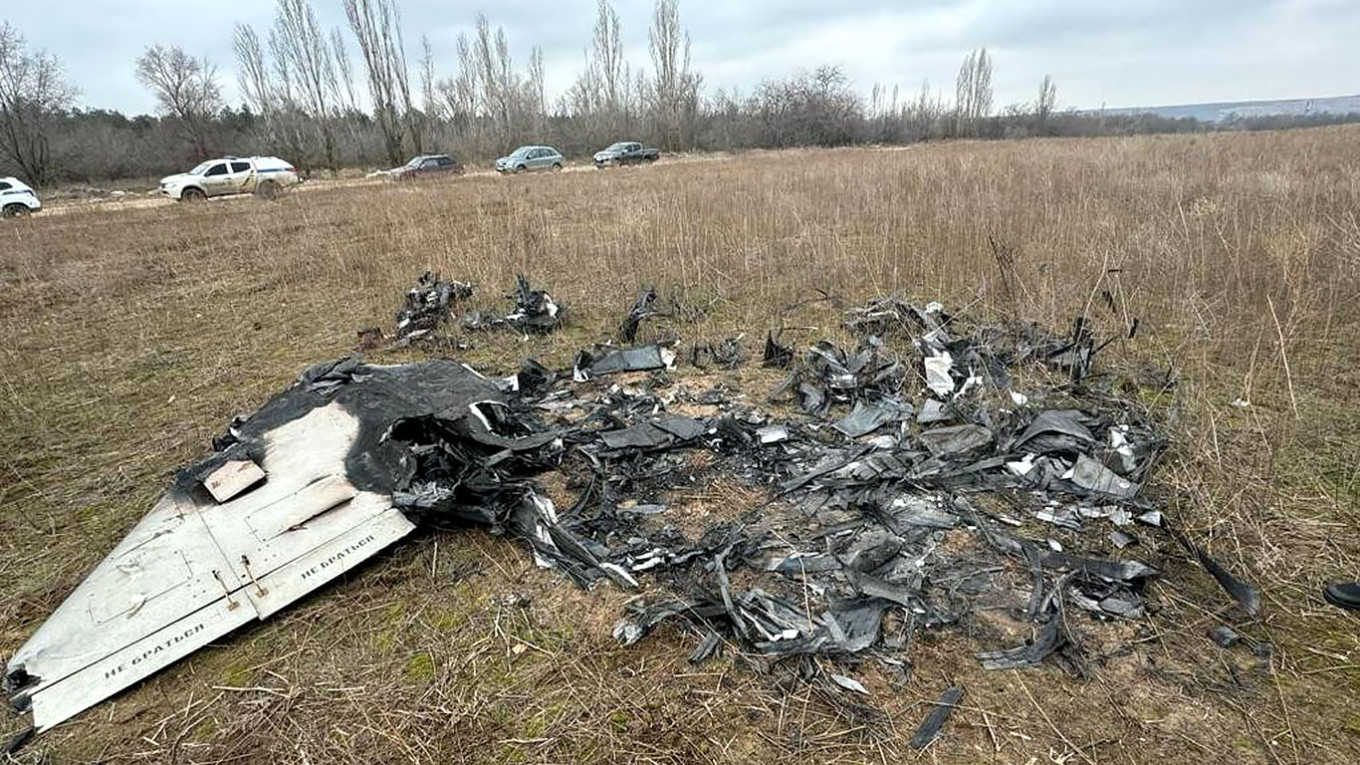
Latvian President Edgars Rinkevičs said on X (formerly Twitter) on Sunday that a “Russian military drone has crashed in the Eastern part of Latvia” a day earlier.
Latvian armed forces commander General Leonids Kalnins confirmed on Monday that the drone was identified as an Iranian-designed Shahed equipped with explosives and that its fragments were collected “for further investigation.”
The country’s air force commander Colonel Viesturs Masulis also stated that "the drone was not aimed at a military target,” but “sort of drifted into Latvia."
How did the impacted countries react?
Romania’s Foreign Ministry issued a statement on Sunday calling for “an end to the repeated attacks against the Ukrainian population and civilian infrastructure” and “irresponsible escalation of the security situation” by Moscow.
Latvian President Rinkevičs, in turn, said that the government was “in close contact” with NATO allies over the situation.
“The number of such incidents is increasing along the Eastern flank of NATO and we must address them collectively,” said Rinkevičs.
How did other allies react?
“Incidents unthinkable three years ago are now treated as routine. Nothing should be landing on Ukraine, or Latvia, or anywhere on NATO territory, but this is the new reality our inaction has allowed to emerge,” said Lithuania’s Foreign Affairs Minister Gabrielius Landsbergis.
“Lithuania will of course be supporting a strong allied response,” Landsbergis added.
“Putin's Russia is currently the biggest threat to peace and security right at NATO’s eastern flank. The drone incidents in Romania and Latvia have illustrated this once again. We closely coordinate with our allies and stand by their side,” the German Foreign Office said in a statement.
Earlier this month, Polish Foreign Minister Radosław Sikorski told the Financial Times that Warsaw should consider preemptively shooting down Russian drones to protect its airspace — a position opposed by NATO’s top leadership but backed by most Poles.
What is NATO saying?
NATO’s outgoing Deputy Secretary Mircea Geoană wrote on X on Sunday that the alliance “condemns the overnight Russian airspace violation into Romanian airspace.”
“While we have no information indicating an intentional attack by Russia against Allies, these acts are irresponsible and potentially dangerous,” said Geoană.
What has Russia said?
The Kremlin has not commented on the incident.
Latvia’s Foreign Ministry said Monday that it issued a protest to Moscow’s diplomatic mission and requested “a comprehensive explanation of the incident,” but its Russian counterparts are yet to act on the request.
What are the implications?
“[Eastern] ‘frontline states’ have been pressing NATO to enhance its defense posture — especially when it comes to air protection — for a while now,” said Ivan Kłyszcz, an expert at the International Center for Defense and Security in Estonia.
Kłyszcz said the allies of NATO’s eastern flank, namely Latvia, Lithuania and Poland, will “increasingly insist” on stepping up air defense posture in the aftermath of last weekend’s incidents, though that will be no “change of trend.”
“When it comes to Russia and the Kremlin, they are definitely paying attention to everything that the West is doing when it comes to these drones. They, of course, are very interested in seeing whether we react or not,” said Kłyszcz.
“But I don't think they will draw any evidence [that would force them] to change their tactics or approach to NATO from this particular incident,” he added.
A Message from The Moscow Times:
Dear readers,
We are facing unprecedented challenges. Russia's Prosecutor General's Office has designated The Moscow Times as an "undesirable" organization, criminalizing our work and putting our staff at risk of prosecution. This follows our earlier unjust labeling as a "foreign agent."
These actions are direct attempts to silence independent journalism in Russia. The authorities claim our work "discredits the decisions of the Russian leadership." We see things differently: we strive to provide accurate, unbiased reporting on Russia.
We, the journalists of The Moscow Times, refuse to be silenced. But to continue our work, we need your help.
Your support, no matter how small, makes a world of difference. If you can, please support us monthly starting from just $2. It's quick to set up, and every contribution makes a significant impact.
By supporting The Moscow Times, you're defending open, independent journalism in the face of repression. Thank you for standing with us.
Remind me later.



